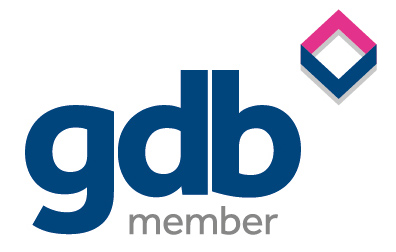Harvey John
Unit 2 Ferry Wharf
Hove Enterprise Centre
Basin Road North
Portslade, East Sussex
BN41 1BD
We recently published a poll on LinkedIn that asked what struggles you were finding in your current job search. When the results came through it was clear that not receiving interview feedback was the main problem that applicants are facing across the market.
This being the case, we’ve come up with some tips and recommendations you can use as a part of your interview practice to help you ask for interview feedback.
Tip 1 – Ask at the end of the interview when you should expect to hear back.
When the interview is coming to an end, more often than not the interviewer will ask you if you have any questions. This is the perfect opportunity to ask when you should expect to hear back.
In addition to giving you a clear understanding of the hiring process, there are other benefits of asking this when interviewing for a prospective role:
- This demonstrates to the interviewer you’re interested in the role
- Asking also provides an opportunity to follow up with the hiring manager or HR personnel. This could come in handy if the date they told you passes
- Knowing when you will hear back will help in planning your next steps, i.e if you are looking to continue your job search or planning your second interview.
Tip 2 – Be specific with the questions you ask at the end of your interview
In addition to asking when you should expect to hear back, you should also ask who will be coming back to you. You could ask for their direct contact details if you’re feeling bold!
Also, asking strong questions at the end of the interview will demonstrate your interest and make the interviewer feel more willing to provide feedback when the time comes.
Here’s some example questions you can ask:
- Does the company have growth plans? How do you envisage this growth impacting the finance team?
- What are the key deliverables for the position and how / when will they be assessed?
- How do you see this position progressing in the future?
- How many other candidates are you interviewing? (To indicate your competition)
- How do I compare to other candidates you’ve interviewed? OR – Are there any skills/competencies required for this role that you feel I haven’t shown evidence of? (Both bold questions – be aware of tone and see the answer as an opportunity to sell yourself further rather than argue)
- Can I ask when I should expect feedback and from whom?
Tip 3 – Follow up with an email shortly after the interview.
Sending a follow-up email after you’ve attended the interview is a simple yet effective way to express your interest, again making the hiring manager more likely to provide direct feedback.
Here’s an example of a follow-up email you could send:
Dear (Hiring Manager)
Thank you for your time yesterday at my interview for your (job title) opportunity. It was great to meet with you and learn more about the position.
I am excited at the prospect of joining (company name) and, following on from our conversation, I am confident that my background (sector) and experience in (job title) will aid in me being a great fit to your company. I hope to get the opportunity to prove this to you.
If you require any further information from me, please do not hesitate to contact me.
Looking forward to hearing your feedback.
Kind regards,
(Name)
Tip 4 – If the agreed feedback date passes. Follow up with the hiring manager or HR asking for interview feedback
If you have been advised that you will hear by a certain date and this passes, a further follow-up may help prompt feedback. You can do this by either calling or emailing the decision maker.
If you call them, make sure you:
- Are polite, positive and professional and don’t hint at any frustrations. People are less likely to respond to messages with the wrong tone. You could (politely) ask about the status of the hiring process and if they need any additional information/documents from you. This is also an opportunity to reconfirm your interest, if it feels appropriate
- Keep it short & sweet. Here’s an email example of what you could say:
Dear (Hiring Manager)
Thank you again for your time on (date).
Please do let me know if you have reached a decision or require any additional information from me. If unsuccessful, I would be grateful for any guidance on how my interview technique could be improved, or areas in which you feel I need to develop in my experience.
I look forward to hearing from you.
Kind regards,
(Name)
Tip 5 – Requesting further information after receiving feedback
Finding out you’ve been unsuccessful after an interview can be disheartening and, although it may not be the news you had hoped for, you could view it as a learning opportunity. Feedback may often be ‘short and sweet’ but you can always request more detailed feedback to help in your continued job search. Politeness again is key.
Examples of follow-up questions:
- In preparation for future interviews, please could you provide me with some further insight into why I wasn’t successful in this instance?
- Is there anything you would advise I approach differently in future interviews and areas for improvement?
- May I ask what differentiated the successful candidate from myself so that I know where to focus future efforts? Such as qualifications, systems experience, communications skills etc.
- Are there any specific areas in my experience that you felt were lacking? I’m of course keen to build on these in the future
Receiving that valuable feedback following an interview whether you are successful or not can be so useful in developing your interviewing technique. The advice above should give you some guidance for your next interview. If you’d like to not go your next round alone, let us help you with your job search, we can provide so much more knowledge and advice!
—
Danielle Prior is the Candidate Engagement Manager in the Accountancy & Finance division at Harvey John.
If you would like to see our company updates and industry insights, follow our LinkedIn page.
Author
Danielle's successful 10-year career within recruitment has given her a laser focus on identifying, attracting and retaining the best talent for our experienced consultants to speak with and place into their next role.







